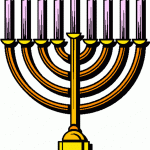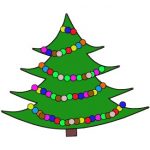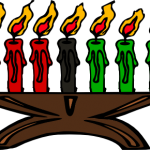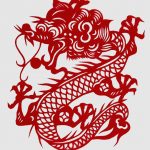Guide to Holiday Traditions at Hills West
West has finally reached the “Ember” months, where with the cold and the snow comes the joy of holiday fun. Most people love this time of the year just because of the various holidays celebrated.
The name Hanukkah comes from the Hebrew verb which means “to dedicate.” This year, this holiday starts on December 8th and lasts until the 16th. It is known as the festival of lights, and commemorates the re-dedication of Jerusalem’s Holy Temple at the time of the Maccabean revolt against the Syrians, who were trying to force the Jews to worship idols. The most well-known part of the revolt, the miracle of the one-day supply of oil that kept the candles burning for eight whole days, is represented by the menorah and its eight branches, with one extra light called the shamash. During Hanukkah, blessings are said, songs are sung, gifts are exchanged, and food is eaten (notably latkes or potato pancakes). Children also receive chocolate coins and play dreidel games in the company of their family and friends.
Kwanzaa is an African American holiday created in 1966 by Maulana Karenga, during the Pan-African movement. The name comes from a Swahili phrase meaning “first fruits of the harvest.” This year Kwanzaa is from December 26th to January 1st. There are seven candles on the Kwanzaa kinara, each symbolizing a different virtue for the new year: umoja, which means unity; kujichagulia, which means self-determination; ujima, which means community and responsibility; ujamaa, which means cooperative economics; nia, which means purpose; kuumba, meaning creativity; and imani, which means faith. During Kwanzaa, people exchange gifts and greet each other with “Habari gani,” which means “What’s the news?”
Christmas is a holiday celebrating the birth of Jesus Christ. It is celebrated differently in countries around the world, such as Las Posadas in Mexico, and Santa Claus and Father Christmas in America and Europe. Every year, Christmas falls on December 25th, but the 24th is considered a night of excitement for young children who leave milk and cookies for Santa Claus and wait for him to arrive with presents. On Christmas Day, families open their gifts and celebrate the rest of the holiday with each other or at church.
While 2012 is the year of the dragon, this coming Chinese New Year will belong to the snake and will begin on February 10, 2013. According to legends, villagers in ancient China were constantly plagued by a wild monster named Nien that killed many people at the end of each year. Finally the villagers decided to use loud noises and shining lights to scare the beast away, and this plan worked. Thus, this tradition in celebration of the new year was born. The Chinese New Year includes parades with colorful costumes, floats, and fireworks. In the city, you can see displays and dances in Chinatown. Older kids often stay up past midnight like most people do on January 1st, and they receive money wrapped in red and gold envelopes. These colors symbolize happiness, prosperity, good luck, and success for the new year that has arrived.
Hopefully these happy occasions will bring relief to New Yorkers seeking something to look forward to after the disaster of Hurricane Sandy, and they’ll be able to find their holiday spirit regardless of the troubles they’re facing.









